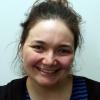Publishing Roundtable!
Meet journal editors from Mainsheet, Coastal Studies & Society, The Northern Mariner, and Animal History and ask them anything about submitting your article
Historians of science have recently begun to examine role of the oceans themselves in human activity, not just as a pathway between places that matter, but as a place with a history of its own, with which humans have always interacted. In turning their gaze to the other two thirds of the earth's surface, scholars thus acknowledge the oceans as a changeable and changing place, affecting and affected by human activities. This "oceanic turn" is playing out in the humanities broadly, as scholars in many disciplines explore the role of the oceans in human endeavors including labor, culture, politics, industry, law, or literature. Spanning many different periods and regions around the world, this group will examine broad conceptions of oceans across history.
Consortium Respectful Behavior Policy
Participants at Consortium activities will treat each other with respect and consideration to create a collegial, inclusive, and professional environment that is free from any form of discrimination, harassment, or retaliation.
Participants will avoid any inappropriate actions or statements based on individual characteristics such as age, race, religion, ethnicity, sexual orientation, gender identity, gender expression, marital status, nationality, political affiliation, ability status, educational background, or any other characteristic protected by law. Disruptive or harassing behavior of any kind will not be tolerated. Harassment includes but is not limited to inappropriate or intimidating behavior and language, unwelcome jokes or comments, unwanted touching or attention, offensive images, photography without permission, and stalking.
Participants may send reports or concerns about violations of this policy to conduct@chstm.org.
Upcoming Meetings
Tuesday, July 15, 2025, 2:00 - 3:30 pm EDT
Tuesday, August 19, 2025, 2:00 - 3:30 pm EDT
Oceans Book Club! We're reading Ray Nayler's The Mountain in the Sea (2022).
Grab the book, give it a read, and join us for a discussion led by Alison Glassie (Northeastern University).
Past Meetings
-
Natalia Gándara Chacana, Pontificia Universidad Católica de Valparaiso, Chile, "Below the waves: the construction of knowledge about the depths of the Southeastern Pacific during the Age of Revolutions"
-
Robert Batchelor, Georgia Southern University, “Reframing Borderwaters: Marshall Island Stick Charts as Infrastructures”
-
Helen Rozwadowski, University of Connecticut, "Sounding Ocean Maps for Early Modern Understanding of the Volumetric Ocean"
.
NOTE re: downloads: Turn on comments in the PowerPoint PDF to match the figures with the text.)
-
Jennifer Hubbard, Toronto Metropolitan University, "Colonizing the Oceans: Fisheries Scientists as Agents of Empire in the Pacific"
-
Ellen Arnold, University of Stavanger, "Dangerous Waters"
-
Dominik Hünniger, Universität Hamburg, “Unnamed marine animals” – knowledge formation on oceanic microfauna, ca. 1750-1850"
-
Victoria McAlister, Towson University
“The Herring Speaks: Exploitation of Marine Resources in Medieval and Early Modern Ireland.”
-
Kunyan Zheng, Trinity College Dublin, "Health from Nature: Medical Knowledge of Marine Fish Fish in England, c. 1540-1700"
-
Lino Camprubí, Universidad de Sevilla, "Jason and the Argonauts: Temporality, Usability, and Tacit Knowledge in Remote Ocean Monitoring"
-
*Note Special Time*
Samantha Muka, Stevens Institute of Technology, " 'A New York Institution': The impact of the New York Aquarium on the development of American biology, 1898-1967"
-
Urna Mukherjee, Johns Hopkins University, "Malabar Teak" and "Bengal-made Canvass": Indigenous Expertise in Eighteenth Century Shipbuilding in British Colonial Bombay and Calcutta
-
Jack Bouchard, Rutgers University, New Brunswick.
Two chapters from his manuscript Terra Nova: Work, Water and Food in an Early Atlantic World
-
"Oceans in the Archives"
Join us as a panel of archivists introduce us their collections on ocean history, finding aids and funding for researchers.
Featuring:
Laura Kissel, Polar Curator (Byrd Polar and Climate Research Center Archival Program, The Ohio State University)
Daniel Lewis, Dibner Senior Curator History of Science & Technology (The Huntington Library, Art Museum & Botanical Gardens)
Josh Levy, Historian of Science and Technology (Manuscript Divison, Library of Congress)
-
"Oceans in Museums"
Join us as a panel of museum professionals share their favorite objects and collections, discuss the challenges of curating ocean exhibits, and share resources for researchers.
Featuring:
Dr. Erika Jones, curator of navigation and oceanography, (UK) National Maritime Museum
Dr. Katrin Kleemann, postdoctoral researcher, Deutsches Schifffahrts Museum
Dr. Kevin Sheehan, collections manager, Maritime Museum of San Diego
-
"Teaching Ocean History"
Join us as a panel of historians discuss their experiences teaching the history of oceans to students in various academic contexts. We will also precirculate their syllabi for discussion.
Helen Rozwadowski (University of Connecticut, Avery Point)
Samantha Muka (Stevens Institute of Technology)
Jonathan Galka (Harvard University)
Jack Bouchard (Rutgers University)
-
Jakobina K. Arch, Whitman College, "Mitigating Risk: Cultural and Economic Adaptations to Oceanic Dangers in Tokugawa Japan."
-
Katherine Sinclair, Rutgers University, " 'A Magnificent Natural Zoo': Domesticating the French Kerguelen Islands."
-
Alison Glassie, Mahindra Humanities Center, Harvard University, "Ninety Perfect Sealskins: Toni Morrison’s Counter-history of Sealing."
-
Beatriz Martínez-Rius, Sorbonne Université, "International science, salt domes, and oil: deep-sea drilling in the Mediterranean."
-
Magdalena Grüner, Universität Hamburg, "Else Bostelmann’s Abyssal Visions and the Ocean-Surreal"
Pagination
- Previous page
- Page 2
- Next page
Group Conveners

Max Bridge
I am a PhD Candidate in History at Brown University. My disseration - "Oceanic Listening" - explores the environmental and sensory history of cetaceans and underwater sound over the past 200 years, covering topics such as whaling, echolocation research, and the popular culture of whale song. I am also broadly interested in disability history and disability studies, including their intersections with environmental history.

Penelope Hardy
Penelope K. Hardy is a historian of science, technology, and medicine and an associate professor at the University of Wisconsin-La Crosse. She studies the historical intersection of technology and the ocean sciences. Her current book project examines a series of nineteenth- and twentieth-century ocean-going research vessels and the cultures and practices surrounding their use. She is a vice president of the International Commission of the History of Oceanography, is vice president for research and publications of H-Net, and helped to found H-Oceans.

Daniella McCahey
Daniella McCahey is an Assistant Professor at Texas Tech University, where she primarily teaches on British history and the history of science. She studies the relationship between science and the environment in Polar Regions, especially islands, coasts, and ice shelves. She is the co-author of Antarctica: A History in 100 Objects (Bloomsbury 2022). Her book project, Laboratories at the Bottom of the World, addresses the history of British and New Zealand science in Antarctica during the International Geophysical Year.